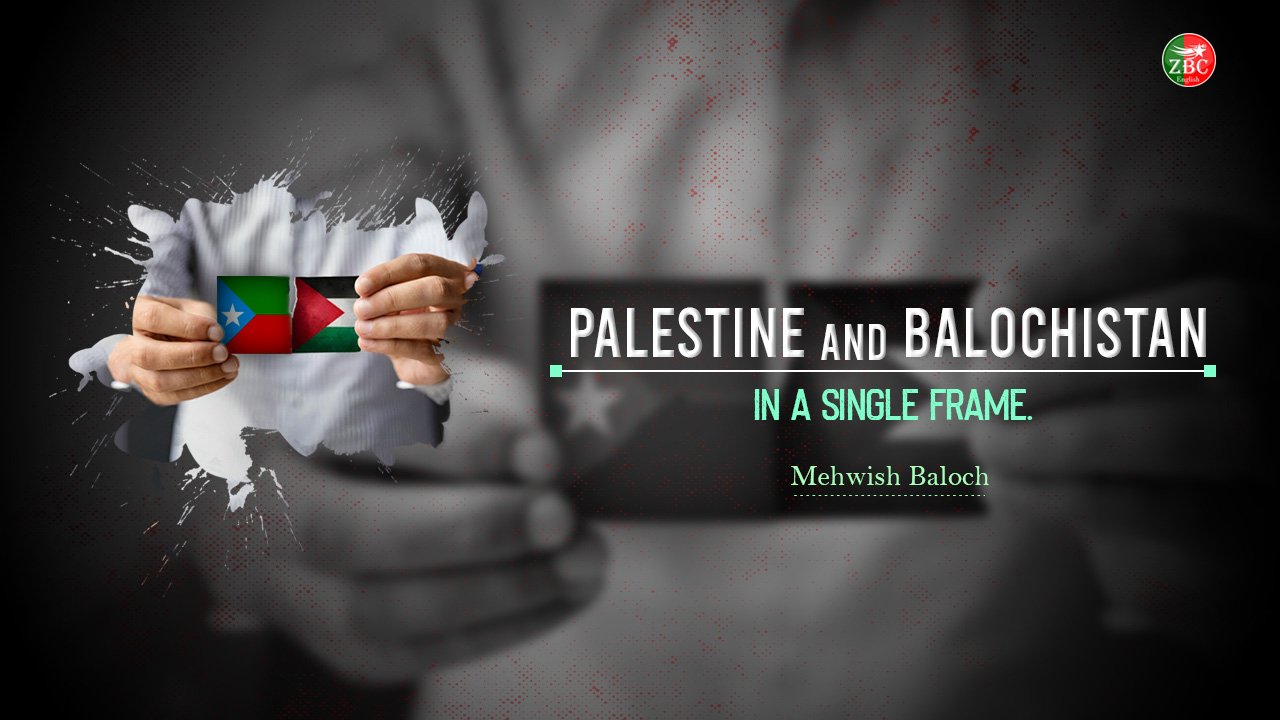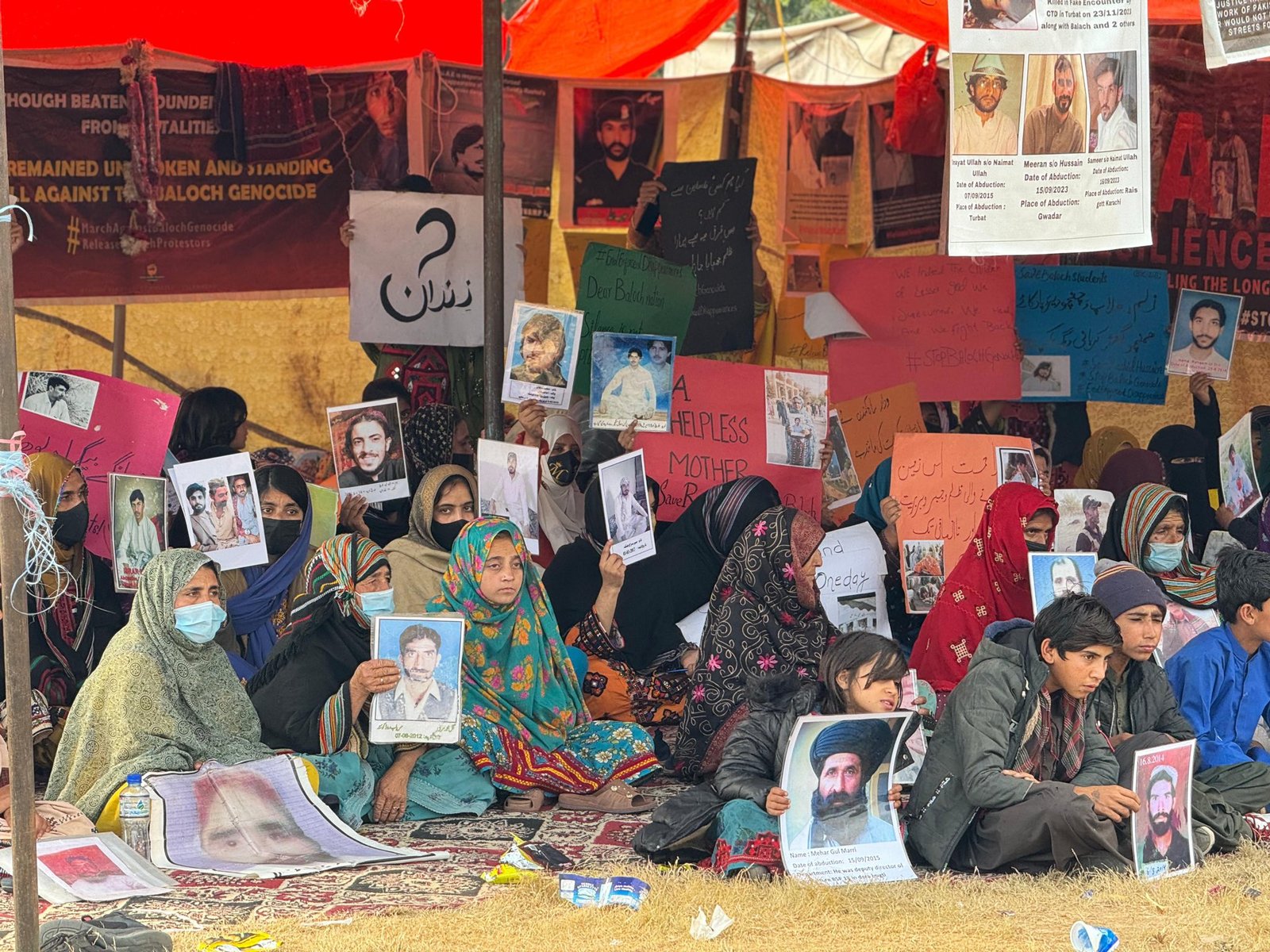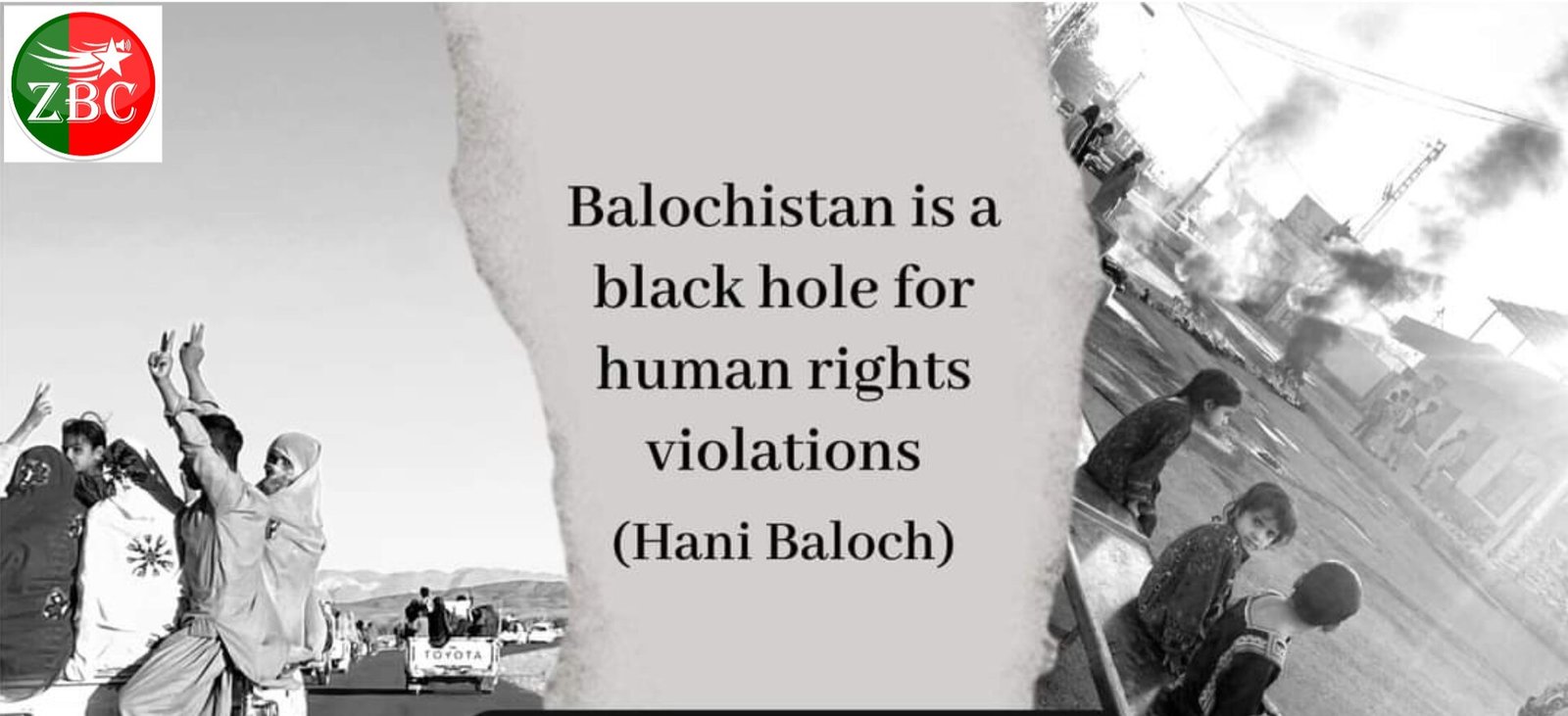Palestine and Balochistan in a Single Frame.
Mehwish Baloch
The stories of Palestine and Balochistan, though geographically distant are connected in their shared quest for self-determination and independence. Both regions have endured historical occupation, and injustices, facing oppression and seeking liberation in their own unique ways.
Israel's unlawful construction and expansion of settlements, as well as their related infrastructure on Palestinian soil, are some of the most defining features of Israel's occupation. These actions have bred mass violations against Palestinians over the past five decades.
The history of the Israeli-Palestinian conflict traces back to the late 19th century when Zionists sought to establish a homeland for the Jewish people in Ottoman-controlled Palestine. During World War II and the Holocaust, international pressure mounted for the establishment of a Jewish state in Palestine. Jewish militias launched attacks against Palestinian villages, and the situation escalated into a full-blown war in 1948. After considering alternatives, the UN proposed terminating the mandate and partitioning Palestine. In addition, Israel occupied these territories during the 1967 war.
In 1974, the General Assembly reaffirmed the inalienable rights of the Palestinian people to self-determination and national independence. In 1993, a declaration of principles on interim self-government arrangements, commonly referred to as the Oslo Accord, was signed at the White House. Israel accepted the PLO as the representative of the Palestinians.
Right now, Palestinians, Israelis, and all of them with families on the ground are terrified for their loved ones. They grieve the lives lost and remain committed to a future where every life is precious, and all people live in freedom and safety.
Over the past year, the most racist and fundamentalist far-right government in Israeli history has ruthlessly escalated its military occupation over Palestinians in the name of Jewish supremacy. This escalation includes violent home demolitions, mass killings, military raids on refugee camps, and daily humiliation. In recent weeks, Israeli forces have repeatedly stormed the holiest Muslim sites in Jerusalem.
So much has happened over the decades that it is relatively easier to see what is happening regarding the long-standing Palestinian issue and its implications for the complex web of regional players.
In fact, today's answers are deeply rooted in yesterday, and without understanding the past, we will certainly fail to analyze the events.
On the morning of October 7th, under the banner of the Al-Aqsa flood operation, Hamas Qassam launched a daring infiltration from the blockaded Palestinian enclave of Gaza into Israeli land. This sudden attack is the result of the historical resentment of the Palestinians against the Israeli occupation and oppression on the people of the land.
Similarly, the same painful story applies to the beloved nation of Balochistan and the beloved Baloch people. Balochistan is a region with great strategic value, which has been oppressed and sought after by Iran, Afghanistan, and Pakistan at various moments in its history. The Baloch people have spent more than half a century demanding their independence in all possible ways.
With the end of British rule and the partition of India in 1947, the Khan of Kalat gained independence from August 1947 to 1948. After that, Muhammad Ali Jinnah annexed the entire territory, and the Khan of Kalat was forced to sign an incorporation agreement. The military put them down with extreme brutality, imposing violence on our people.
Many political activists and journalists in Balochistan have been abducted because they are fighting for their rights and for their motherland.
This has continued to such an extent that with thousands of bodies being uncovered every year, Balochistan is now being viewed as a land of mass graves.
In this situation, why should we be surprised or offended if some children in the province refuse to sing the national anthem or if local schools refuse to fly the national flag? Why do we shudder when an increasing number of people in Balochistan, including women, for the first time shout slogans that go against the existence of Pakistan.?
Every dead body is an embodiment of renewed resolve to fight the policies of the central government. When a family member goes missing, one doesn't know what to do. They are like vegetables when/if they are returned to us.
This is how you disappear human beings: first, you disappear their bodies, then you erase their names from every paper, every evening news report, every academic talk, and even from the mouths of their family members. And perhaps most painful of all, grief is suspended. Writing this piece itself has been a painful and disconcerting process.
It is hard to hope in the face of this history, and it is hard to imagine one's pitiful contributions as adequate. It is even harder to confront the way I and others have failed our Baloch brothers and sisters. That being said, the memory of fear is difficult to shake from one's bones, and one thinks and rethinks the truths they are allowed to say.
We are being treated like slaves rather than citizens and feel it's time to break away and win outright independence.
Lastly, the plight of both the Palestinian and Baloch are quite similar. The battle they’re facing isn’t just over land, but about their culture and ideologies too. The fight for freedom and the ability to call where they live “home” is a struggle that’s shaped their histories, and continues to shape their realities now.




